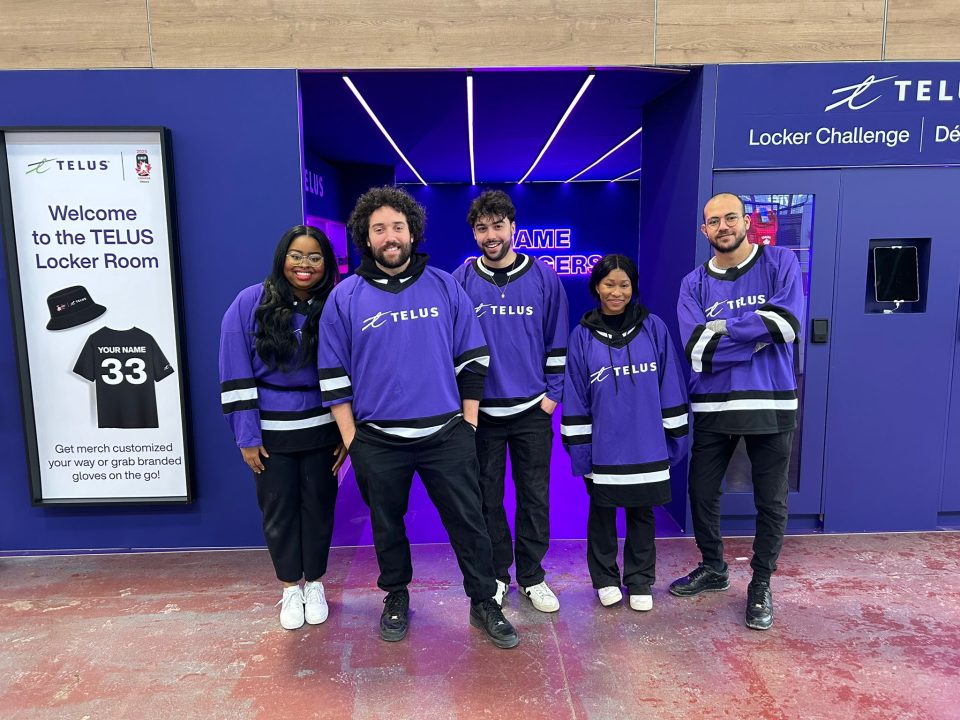Event Coordination & Execution: The Secret to Stress-Free Success

Designing Inclusive Experiences: Accessibility in Experiential Marketing
October 22, 2025
Scaling Success: How National Event Staffing Programs Keep Your Brand Consistent Coast to Coast
November 7, 2025Behind every seamless event whether a corporate conference, product launch, or brand activation lies something guests rarely see.
We’re talking, of course, about the people who make it happen. The event planners who ensure expert coordination and flawless execution from start to finish.
While the creative concept draws attention, as does the main event, booths, or whatever else is drawing people in, it’s the operational backbone that ensures the event actually works.
It’s not about luck, either. Great event coordination is about planning, precision, and teamwork.
Here’s how professional coordination helps ensure stress-free success from start to finish for every event.
The Importance of Pre-Planning
The best event coordinators know that event coordination begins long before the first guest arrives and the event has even opened its doors.
Early collaboration between creative and logistics teams reduces costs in the long term and avoids last-minute disruptions from literally anything that could go wrong.
As such, the pathway towards a successful activation begins in the planning stages, built upon a foundation of logistics, communication, and contingency planning.
Some of these elements include:
- Master timelines with clearly assigned responsibilities.
- Vendor and supplier scheduling to avoid bottlenecks.
- Permitting, insurance, and safety checks handled early.
- Communication frameworks so everyone from staff to sponsors knows what’s happening when.
Ultimately, by addressing potential risks upfront, event coordinators ensure creativity has room to flourish without stress and that there’s fewer (if any) unpleasant surprises on the day of your event.
Communication Is the Glue That Holds Everything Together
Even the best-planned event can falter if communication breaks down. Successful coordinators prioritize clarity, structure, and responsiveness.
This includes coordination between organizers and staff in the run-up to the event as well as during the event in question, whether it be in person or electronically. In fact, research shows that clear, real-time communication tools (which could include apps like Slack, Asana, Monday.com) reduce production stress and cut issue-resolution times.
Some tips for success:
- Hold short but frequent cross-team check-ins.
- Maintain one “source of truth” document or dashboard.
- Encourage proactive problem-solving (empowering team leads).
When everyone stays informed and aligned, guests never see the backstage hustle, they just experience seamless magic. Ultimately, the right event technology at your disposal can go a long way in easing any pains that might arise from planning to execution.
The Right Team Makes a Big Difference
Event execution depends on the people taking a part just as much as the planning. Similarly, strong coordination relies on experienced, trained staff who know how to adapt in real time.
Staff will inevitably help with the setup, the planning, handling the floor, and with the teardown at the end. In other words, they’ll be there every step of the way and as we’ve touched on before, they’re more than just smiles and happy faces.
As such, the right event team at your disposal will be the pillars who help prevent anything from falling over.
Some advice when building your team:
- Rely on team leads who are empowered to make quick decisions
- Assign roles and responsibilities which are clearly defined
- Work with staffing partners (when needed) to provide trained, professional personnel who reflect the brand tone and values
Remember: behind every smooth event is a well-briefed team that anticipates needs before they arise.
Don’t Forget On-Site Execution
With all this focus on the lead-up to the event, it might be easy to forget about what comes after – the event itself!
When showtime arrives, and you have the right time at your side, along with all the planning in place, then coordination becomes choreography. Everything has the potential to unfold like a symphony of its own, right?
Of course, that doesn’t mean it’s time to kick back and relax. Here are some things to consider for the day of your event:
- Real-time monitoring: checking schedules, supplies, guest flow, and AV systems
- Crisis management: fast solutions to unexpected issues, from weather to tech glitches
- Guest experience management: ensuring VIPs, sponsors, and attendees all receive personalized attention
Post-Event Wrap-Up
You’ve probably realized by now that flawless execution doesn’t end when the lights go down. Professional coordinators use the post-event phase to measure, analyze, and improve for future events (and you should too!)
Key steps to consider include:
- Conducting debrief meetings with all teams and vendors
- Reviewing KPIs such as attendance, engagement, and guest satisfaction
- Gathering feedback from attendees and staff
- Documenting lessons learned for future activations
Continuous improvement transforms every event into a blueprint for the next success story.
Finally! The Calm Behind the Curtain
While creativity gets the spotlight of most events (and the memories they produce), coordination and planning is what keeps the lights on and the audience smiling.
At Tigris Events (powered by Simon Pure), we believe that stress-free success comes from meticulous planning, expert staffing, and flawless on-site execution.
From concept to curtain call, our experienced event managers handle every moving part,so you can focus on your guests, your message, and your brand.
Contact us to see how our coordination and execution teams can make your next event seamless, strategic, and unforgettable.
FAQ: Event Coordination & Execution
- What’s the difference between event coordination and event planning?
Planning focuses on design and concept, while coordination handles logistics, communication, and execution, turning the plan into reality.
- How early should event coordination begin?
Ideally, 3–6 months in advance for mid-size events and even earlier for multi-venue activations. Early coordination prevents scheduling conflicts and ensures better vendor options.
- Why hire professional event coordinators?
Professionals bring structure, experience, and vendor networks,reducing stress, improving efficiency, and ensuring brand consistency across all touchpoints.
- What are the biggest coordination mistakes to avoid?
Poor communication, unclear roles, missing permits, underestimating setup time, and lack of contingency planning are the most common pitfalls.
- How does Tigris ensure smooth execution?
Tigris assigns trained team leads, builds detailed run-of-show documents, and coordinates all logistics, from staffing to onsite management, so every event runs flawlessly.




